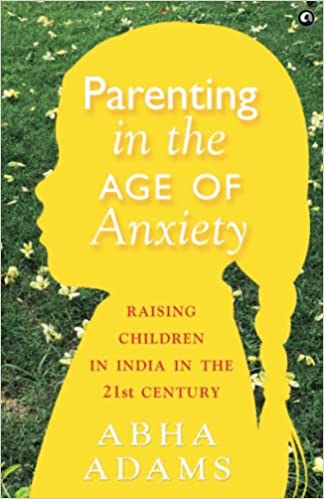PARENTING IN THE AGE OF ANXIETY (PB)
no information available
Over the past decade, Indian society has experienced a significant increase in rates of depression, self-harm, and anxiety disorders among children and young adults. This increase coincides with massive changes in our lifestyles, family structures, our approach to pedagogy, and expectations from the school system. In addition, our society has become intensely consumer- (and consumption-) driven with a proliferation of attractive products, enticing guarantees, and specialist advice. But social media follower counts, expensive digital devices, and the deluge of information on the internet will never be adequate replacements for active and present parenting. In Parenting in the Age of Anxiety, innovative educationist Abha Adams explores the journey that parents, children, and educators take together over the first eighteen years of a child’s life. In the first chapter, ‘Parenting Is for Life’, she explores the various ups and downs parents encounter as they start their parenting journey in a world that is highly competitive with a bewildering array of options for every stage and activity. The second chapter, ‘Welcome to the Tween Years’, looks at a recent phenomenon that has left parents and children perturbed—kids growing older younger/faster, where children reach puberty earlier than in the past. ‘The Teen Years’ attempts to demystify these years and offers counsel to parents on how to communicate with their teenaged children and deal with teenage angst. ‘Bridge to Inclusion’ challenges the invisibility forced by society on differently-abled children and their parents, and offers suggestions on how the struggles, needs, and desires of these children ought to be tackled. The last chapter, ‘The Silence around the Mental Health of Our Children’ provides a helpful guide to supporting children at a time of unprecedented levels of stress and isolation stemming from device and internet addiction and the lack of meaningful connection and communication, which has only been exacerbated by the interruptions and uncertainty caused by the Covid-19 pandemic. Full of insightful observations from family therapists, child psychologists, teachers, parents, and children growing up in twenty-first-century India, this book takes a deep look at the most important issues troubling children and parents today and offers practical and compassionate advice on how these should be dealt with. Most importantly, it provides a blueprint for how children can grow up happy, resilient, and grounded in a rapidly changing world. ... Read more Read less











